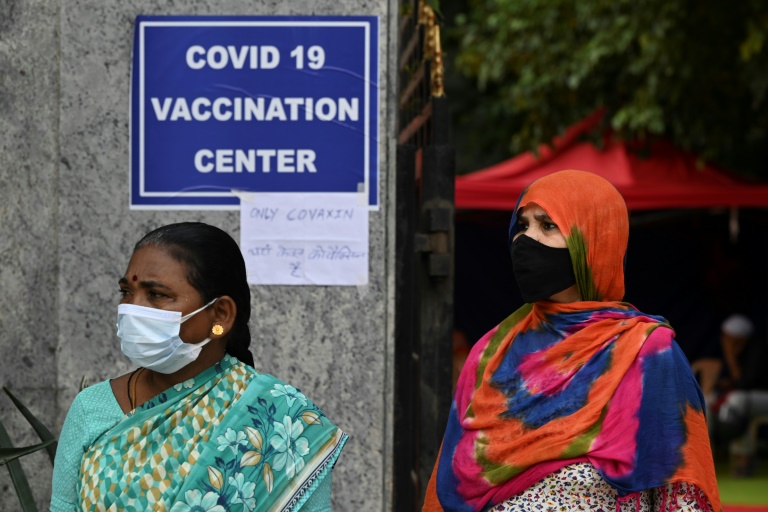The World Health Organization on Wednesday issued an emergency use listing for the India-made Covaxin vaccine, in a move expected to increase Covid-19 jabs available in poor countries.
The vaccine, made by India’s Bharat Biotech and with a 78-percent efficacy rate after two doses over a month “is extremely suitable for low- and middle-income countries due to easy storage requirements,” the UN body said.
Covaxin is the first vaccine completely developed and manufactured in India to receive WHO approval.
Unlike mRNA vaccines by Pfizer/BioNTech and Moderna that have emerged as leading jabs against Covid-19, Covaxin uses the more traditional “inactivated” technology that has been used for decades in vaccines against diseases like polio, seasonal influenza and rabies.
The technology uses a dead version of a germ that causes a disease to boost the immune response.
One of the main advantages of such vaccines is that they are more easily stored that mRNA jabs, which need to be kept at sub-zero temperatures. This makes them easier to distribute, especially in poor countries that may lack the needed facilities.
Covaxin can be stored between 2-8 degrees Celsius (36-46 degrees Fahrenheit), according to the company website.
India welcomed the move, with Foreign Minister Subrahmanyam Jaishankar tweeting that it “facilitates travel for many Indian citizens and contributes to vaccine equity.”
– Group of eight –
Covaxin becomes the eighth vaccine against Covid-19 on the WHO’s list, including others from Pfizer/BioNTech, Moderna, AstraZeneca, Johnson & Johnson, Sinopharm and Sinovac.
WHO emergency approval, which includes an assessment of clinical trial data, can speed up international recognition of vaccines.
It also allows their use by fellow UN agencies and the global Covax initiative, set up to immunise people in the world’s least-well-off countries.
India has administered 121.2 million shots of Covaxin, around 11 percent of the total.
The vaccine, developed by Indian drug maker Bharat Biotech together with the Indian Council of Medical Research, was given “emergency approval” in India earlier this year without completion of phase 3 human trials.
Despite criticism from doctors and health workers over the lack of data, the company and India’s drug regulator insisted it was safe for use.
The firm says it has completed phase 3 trials but has yet to publish the results. In July, releasing “pre-print data,” the company claimed that an overall efficacy of 77.8 percent against symptomatic Covid-19 patients had been found.
Prime Minister Narendra Modi received the vaccine in March this year as India started rolling out its mammoth vaccination programme, which has now seen more than a billion shots given.
The delay in WHO approval has been a cause of worry for many Indians, in particular students, who have had problems returning to their universities abroad.
As of now, around a dozen countries recognise the two-dose vaccine, including Greece, Iran, Mexico, Nepal, Zimbabwe and as of this week, Australia.
India has also exported Covaxin to a number of countries including Iran, Myanmar and Zimbabwe.
Brazil suspended a deal to import 20 million doses of Covaxin from India after corruption allegations.
Owned by husband and wife, Krishan and Suchitra Ella, Bharat Biotech set up in 1996 and has delivered over three billion vaccines for several diseases including Zika and Hepatitis-B.









